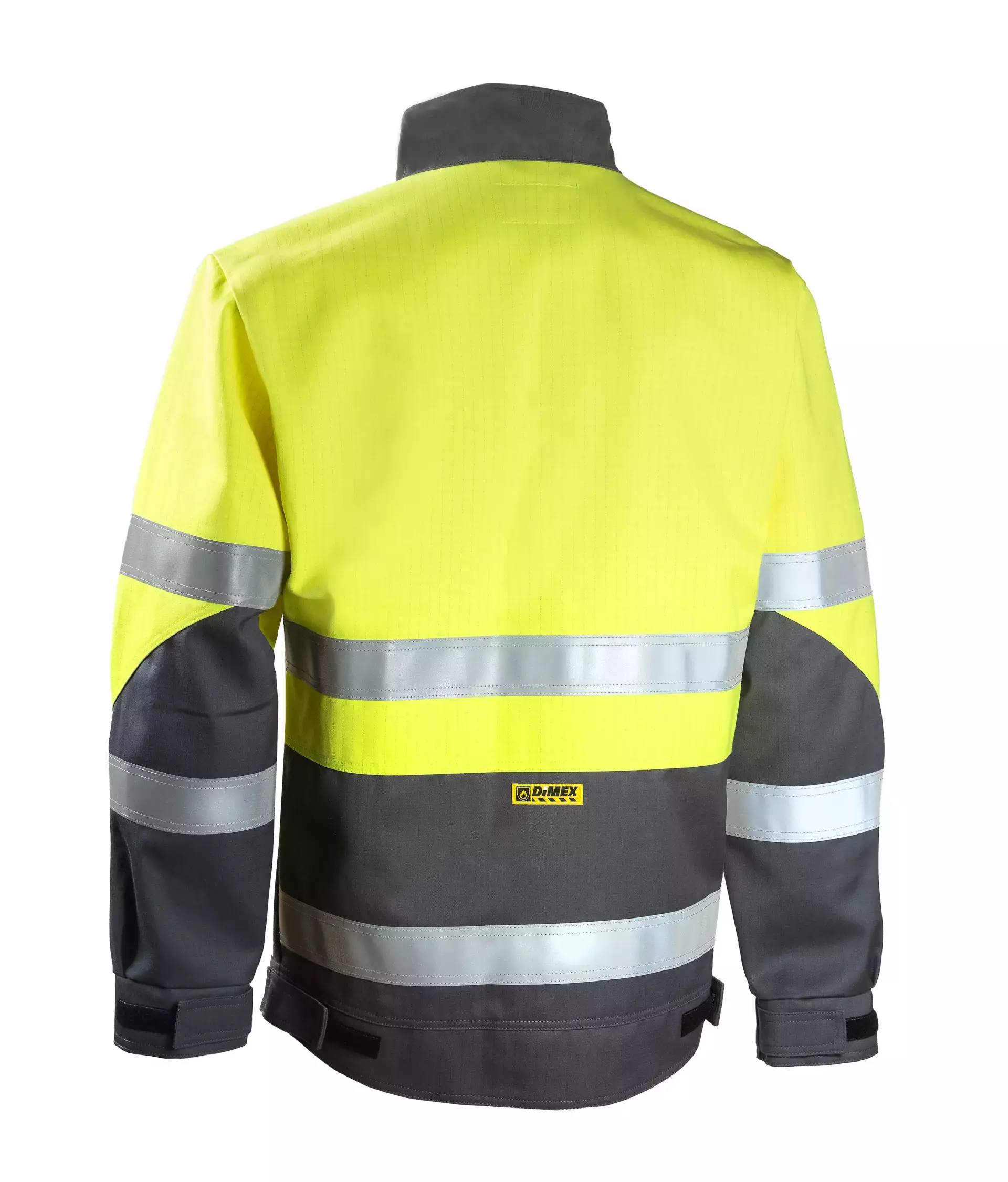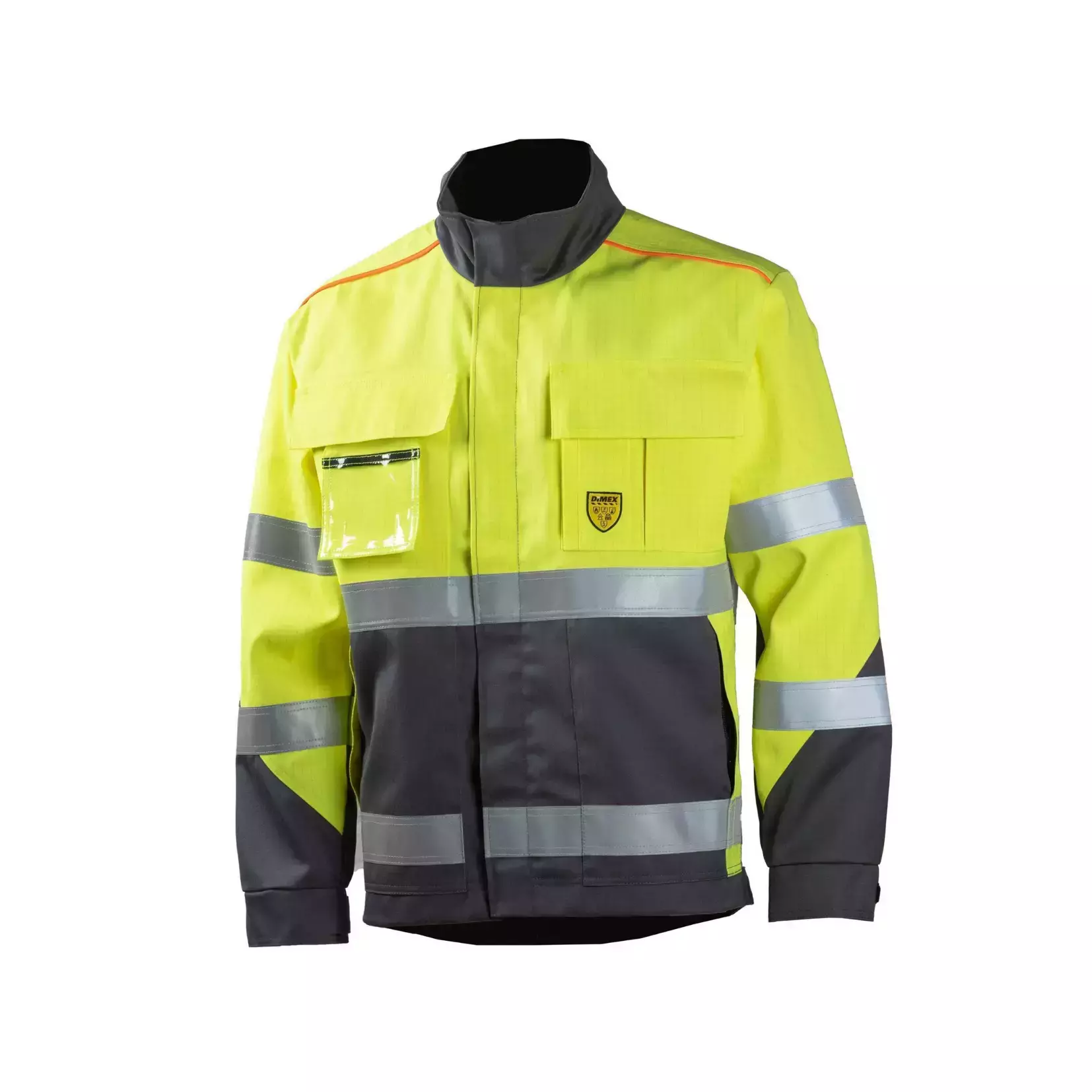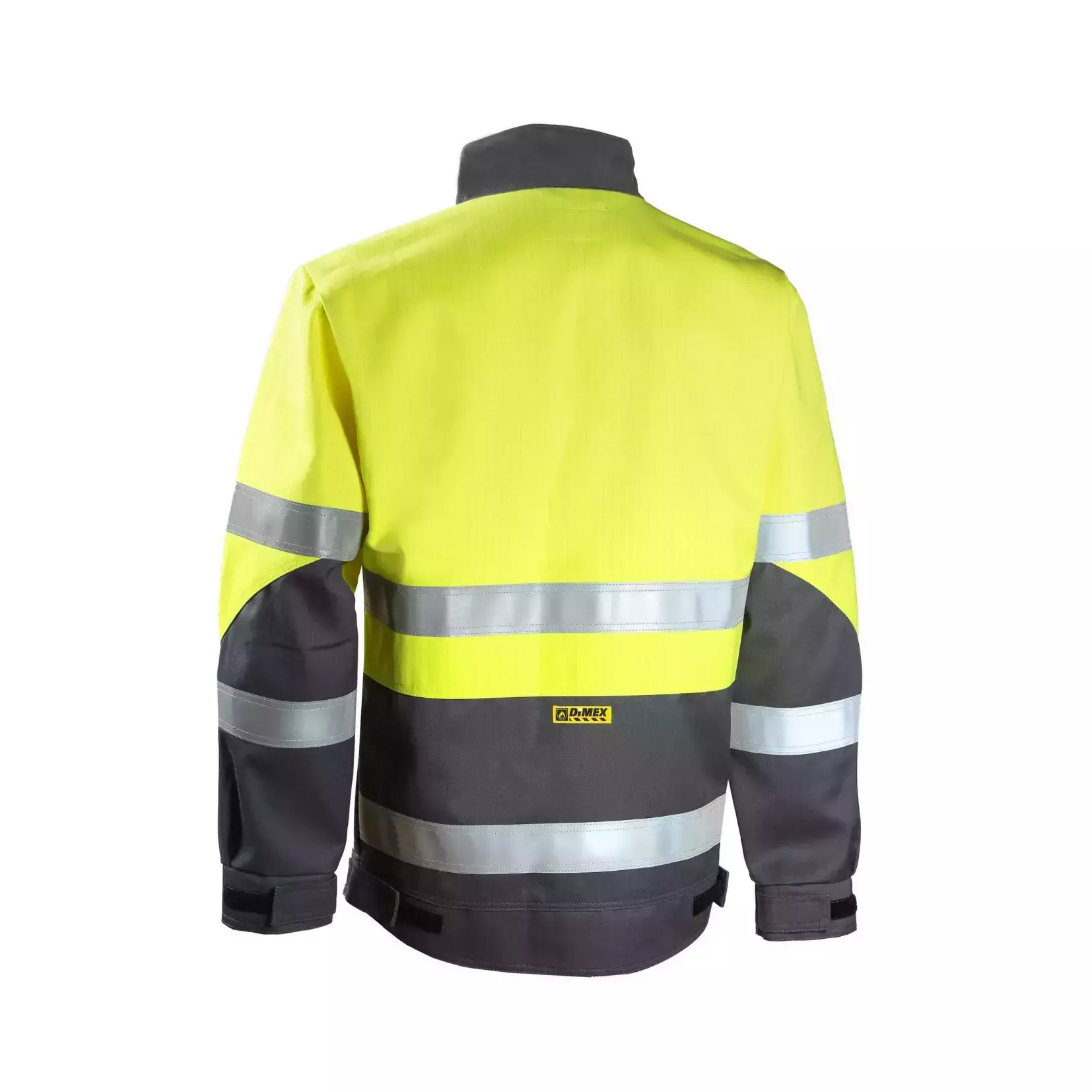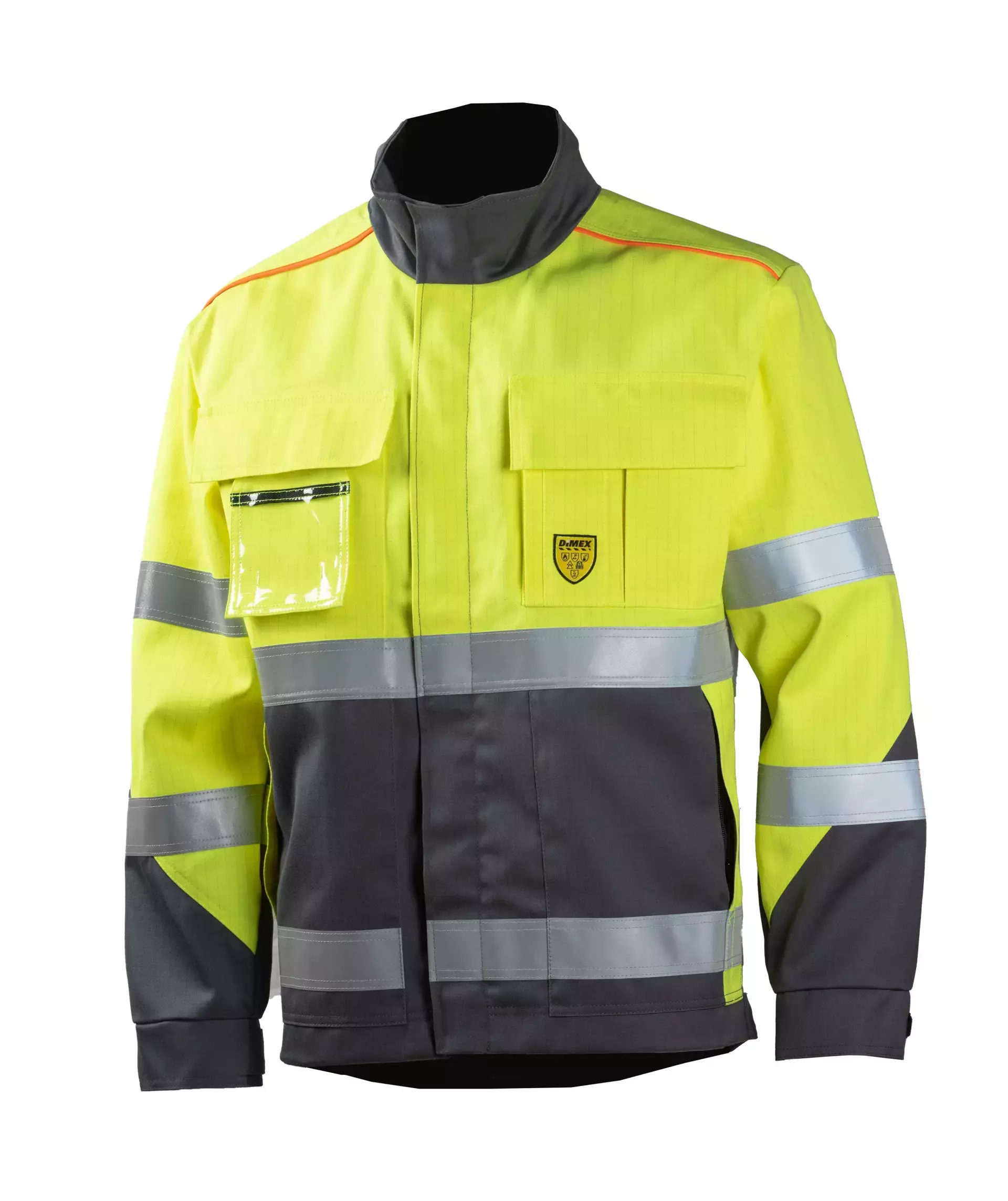
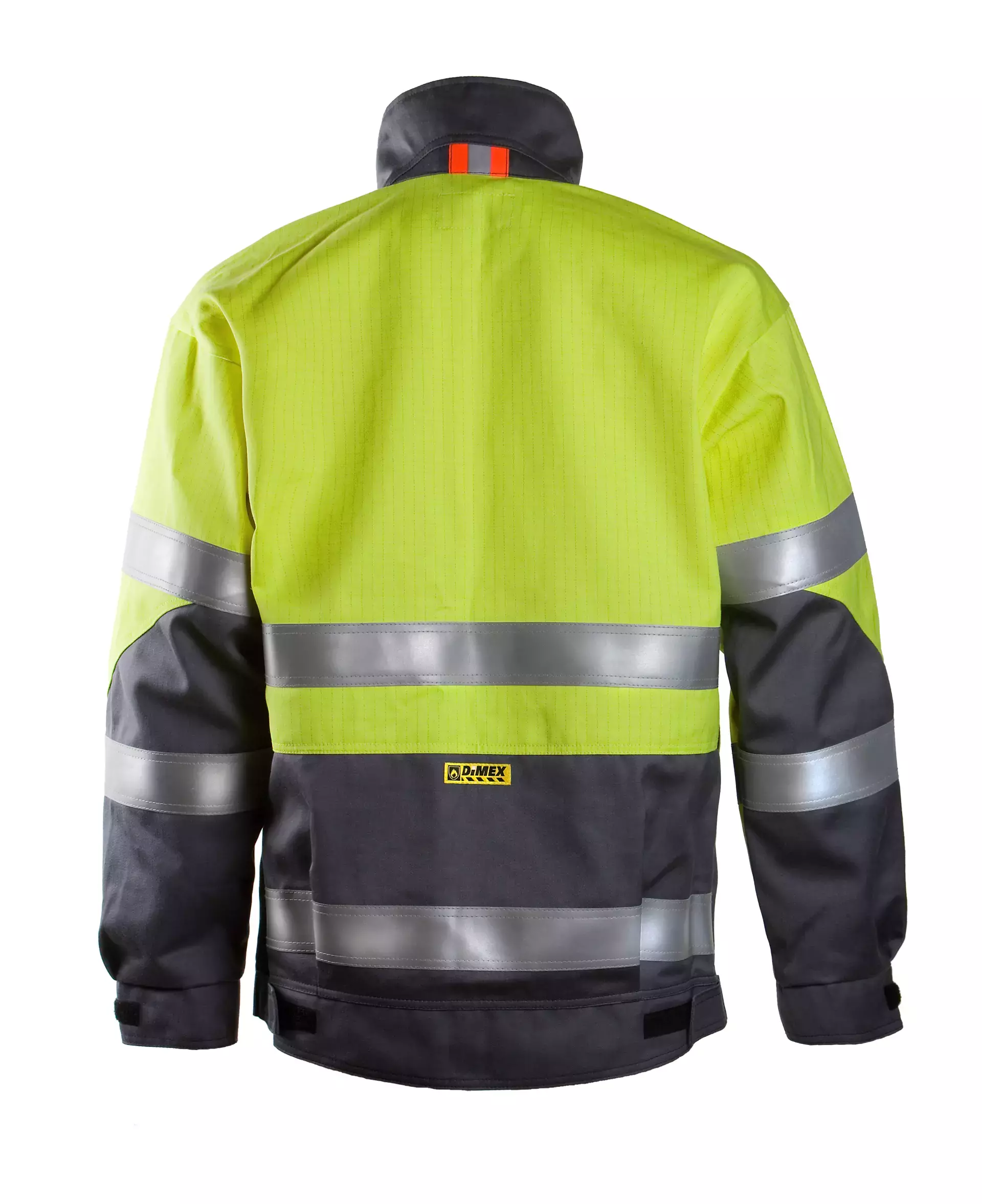
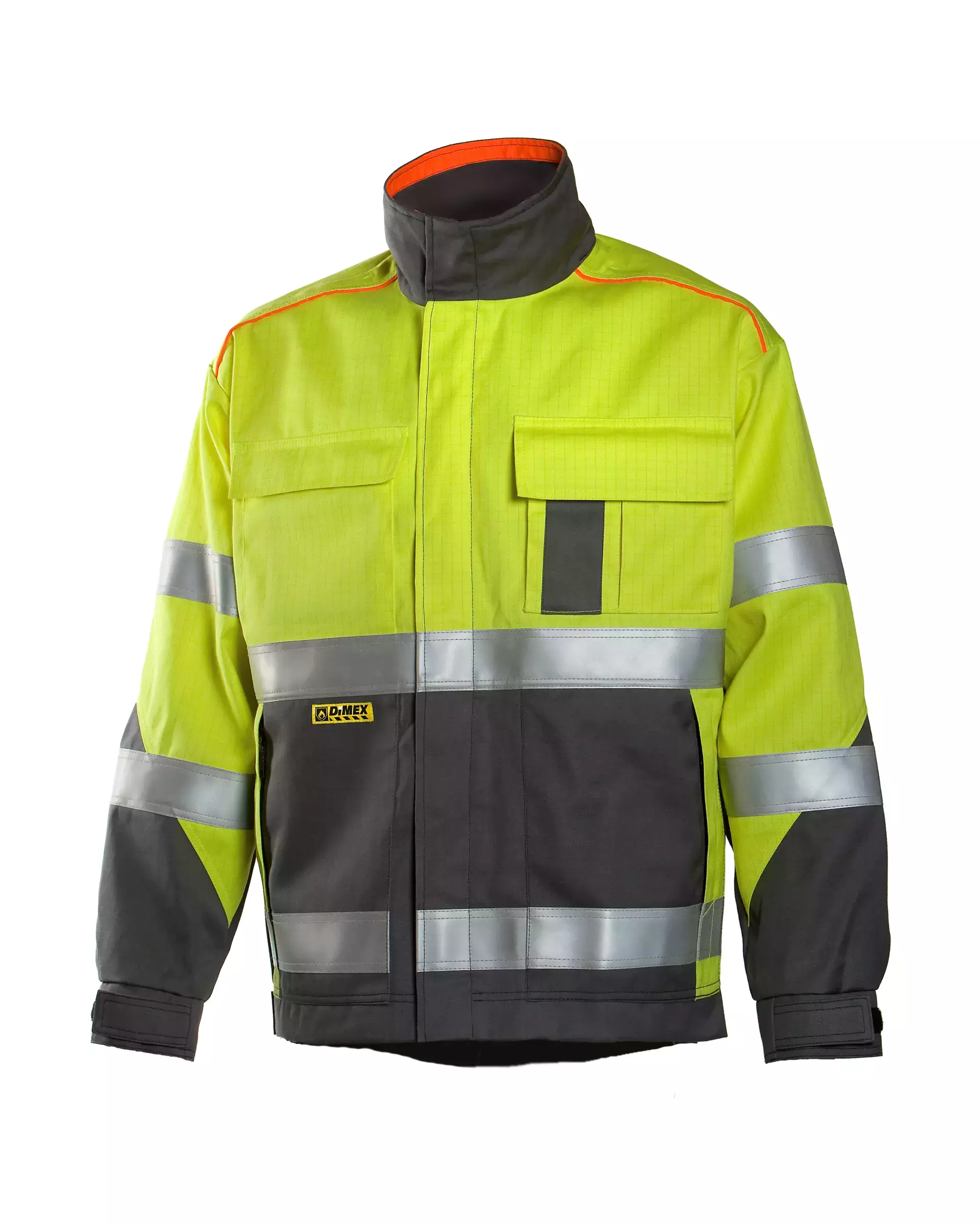
Features You'll Love
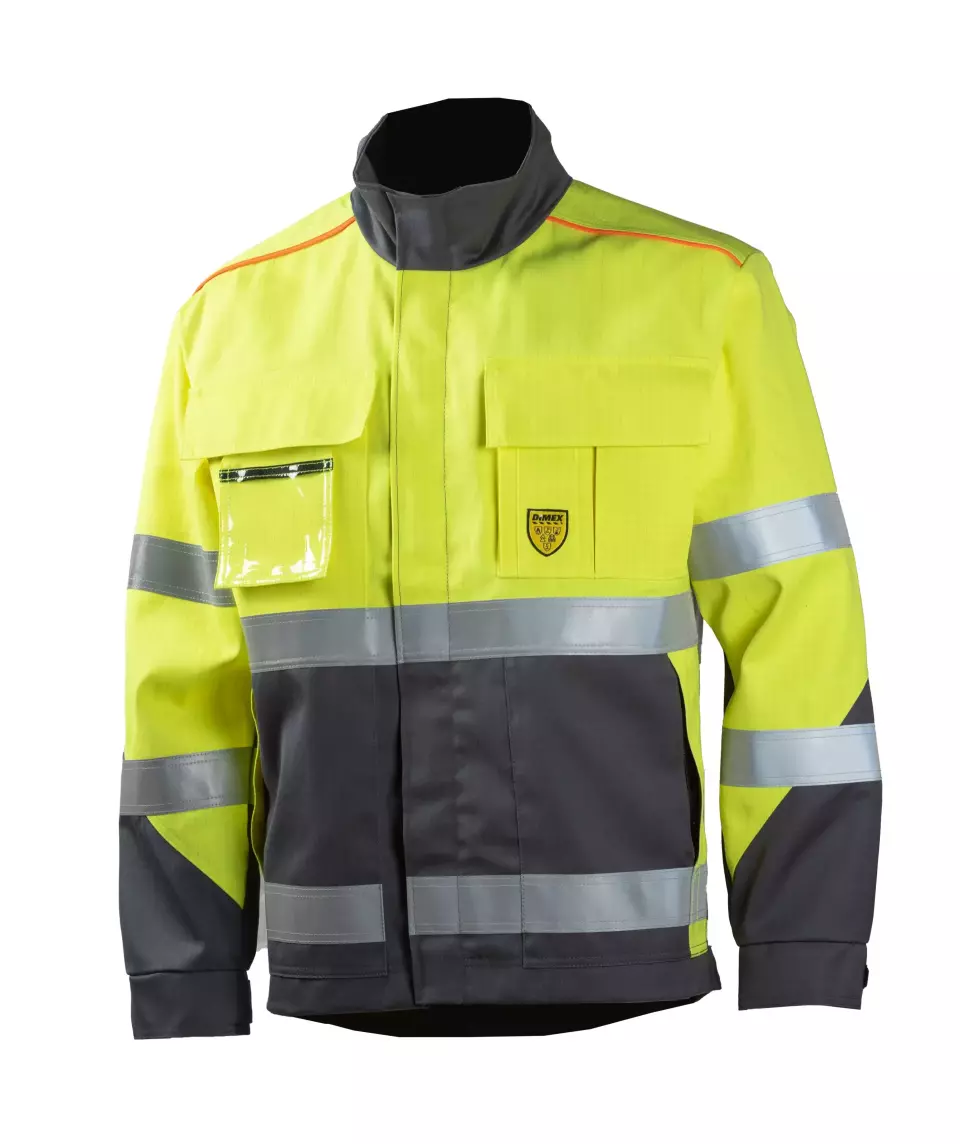
Material · Cotton, Polyester
EN 1149-5 · Material Performance Tested
This garment's material is tested to reduce static electricity buildup. It helps prevent sparks that could cause a fire or explosion in certain work environments, keeping you safer around flammable materials or sensitive electronics.
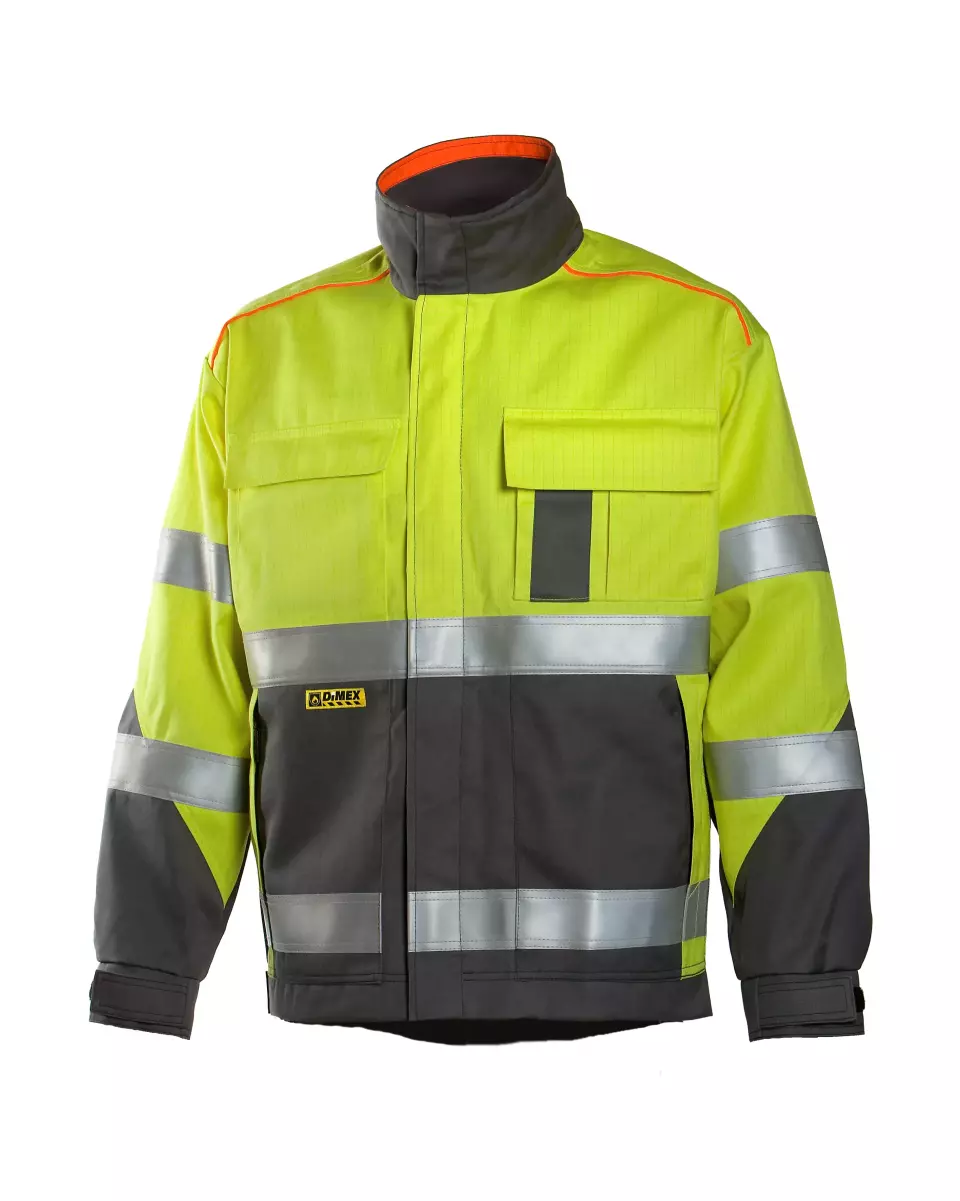
Closure Style · Velcro
Velcro closures offer quick, secure adjustments for a custom fit, ensuring comfort and keeping essentials safe on the job.

Pocket System · Phone Pocket
Keep your phone safe, secure, and always within reach for ultimate convenience on the job.

EN 20471 · Reflective Strip Area Grade 2
This garment provides an intermediate level of visibility for use in moderate-risk environments. It is suitable for work near traffic with speeds up to 60 km/hour, featuring a specified area of fluorescent material and reflective strips.
174,63 €
Choose size
Free delivery
Features You'll Love

Material · Cotton, Polyester
EN 1149-5 · Material Performance Tested
This garment's material is tested to reduce static electricity buildup. It helps prevent sparks that could cause a fire or explosion in certain work environments, keeping you safer around flammable materials or sensitive electronics.

Closure Style · Velcro
Velcro closures offer quick, secure adjustments for a custom fit, ensuring comfort and keeping essentials safe on the job.

Pocket System · Phone Pocket
Keep your phone safe, secure, and always within reach for ultimate convenience on the job.

EN 20471 · Reflective Strip Area Grade 2
This garment provides an intermediate level of visibility for use in moderate-risk environments. It is suitable for work near traffic with speeds up to 60 km/hour, featuring a specified area of fluorescent material and reflective strips.
Product description
This high-visibility protective jacket combines advanced safety features with practical functionality, meeting multiple EN safety standards including electrical arc protection and flame resistance. Constructed from a durable blend of 75% cotton, 24% polyester, and 1% antistatic fiber at 310 g/m², this jacket provides comprehensive protection while maintaining comfort and mobility. The thoughtfully designed storage system includes multiple specialized pockets and 50mm reflective tapes for enhanced visibility in low-light conditions.
Product Features:
- Multiple chest pockets with specialized compartments:
—Horizontal/vertical pull-out ID-card pocket inside right pocket
—Pen and phone pockets on the left
- Lower pockets with zipper closure
- Inside pocket with zipper
- Front protective list with extended coverage under zipper
- Adjustable cuffs and hem with Velcro closures
- 50mm reflective tapes
- Machine washable at 60 degrees
Technical Details:
- Fabric composition: 75% cotton, 24% polyester, 1% antistatic fiber
- Weight: 310 g/m²
Standards:
- EN 1149-5
- EN 13034, Type 6
- EN ISO 11611 A1, CL 1
- EN ISO 11612 A1, B1, C1, E1
- EN ISO 20471 CL 2
- IEC 61482-2:2009, CL 1 (4kA)
